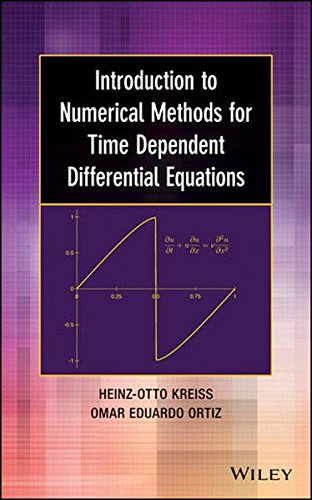

Most ebook files are in PDF format, so you can easily read them using various software such as Foxit Reader or directly on the Google Chrome browser.
Some ebook files are released by publishers in other formats such as .awz, .mobi, .epub, .fb2, etc. You may need to install specific software to read these formats on mobile/PC, such as Calibre.
Please read the tutorial at this link: https://ebookbell.com/faq
We offer FREE conversion to the popular formats you request; however, this may take some time. Therefore, right after payment, please email us, and we will try to provide the service as quickly as possible.
For some exceptional file formats or broken links (if any), please refrain from opening any disputes. Instead, email us first, and we will try to assist within a maximum of 6 hours.
EbookBell Team

5.0
108 reviewsIntroduces both the fundamentals of time dependent differential equations and their numerical solutions
Introduction to Numerical Methods for Time Dependent Differential Equations delves into the underlying mathematical theory needed to solve time dependent differential equations numerically. Written as a self-contained introduction, the book is divided into two parts to emphasize both ordinary differential equations (ODEs) and partial differential equations (PDEs).
Beginning with ODEs and their approximations, the authors provide a crucial presentation of fundamental notions, such as the theory of scalar equations, finite difference approximations, and the Explicit Euler method. Next, a discussion on higher order approximations, implicit methods, multistep methods, Fourier interpolation, PDEs in one space dimension as well as their related systems is provided.
Introduction to Numerical Methods for Time Dependent Differential Equations features:
Introduction to Numerical Methods for Time Dependent Differential Equations is an excellent textbook for upper-undergraduate courses in applied mathematics, engineering, and physics as well as a useful reference for physical scientists, engineers, numerical analysts, and mathematical modelers who use numerical experiments to test designs or predict and investigate phenomena from many disciplines.